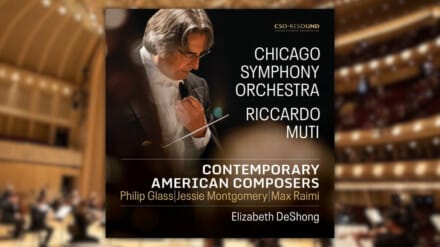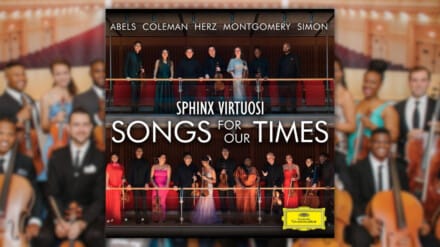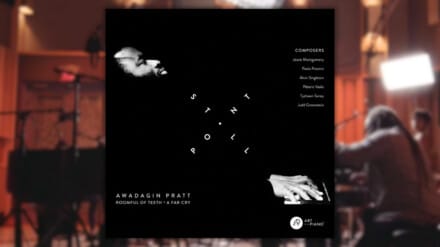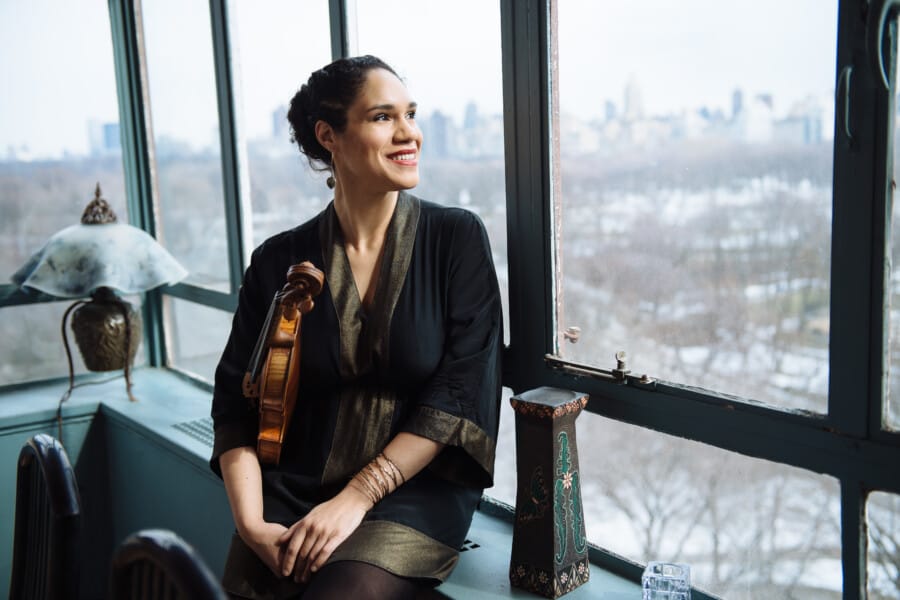🏆 BEST CONTEMPORARY CLASSICAL COMPOSITION
HYMN FOR EVERYONE

For your consideration, Hymn for Everyone by Jessie Montgomery for Best Contemporary Classical Composition.
“Hymn for Everyone is based on a hymn that I wrote during the spring of 2021 that was a reflection on personal and collective challenges happening at the time. Up until that point, I had resisted composing “response pieces” to the pandemic and social-political upheaval, and had been experiencing an intense writer’s block.
But one day, after a long hike, this hymn just came to me — a rare occurrence. The melody traverses through different orchestral “choirs”, and is accompanied by the rest of the ensemble. It is a kind of meditation for orchestra, exploring various washes of color and timbre through each repetition of the melody.”
— Jessie Montgomery
Preview of Hymn for Everyone by Jessie Montgomery
Chicago Symphony & Riccardo Muti
– Chicago Tribune
“Muti infuses the debut performance of Hymn for Everyone with smoldering intensity and nuanced drama.”
– Chicago Sun-Times
🏆 BEST CONTEMPORARY CLASSICAL COMPOSITION
DIVIDED

For your consideration, Divided by Jessie Montgomery for Best Contemporary Classical Composition.
Divided is a composition that reflects upon the complexities of the times, echoing the societal concerns that resonate with many today. With themes touching on racial injustice, discrimination in its various forms, power dynamics, poverty, and the pressing challenge of climate change, this piece provides a contemplative musical journey. In an era where global events are constantly at the forefront, the composition prompts the listener to consider the pursuit of beauty amidst the turmoil.
Divided by Jessie Montgomery
Tommy Mesa, Cello
– The New York Times
– BBC Music Magazine
– Gramophone Magazine
🏆 BEST CONTEMPORARY CLASSICAL COMPOSITION
ROUNDS

For your consideration, Rounds by Jessie Montgomery for Best Contemporary Classical Composition.
Rounds is a composition inspired by the imagery and themes from T.S. Eliot’s epic poem Four Quartets, fractals (infinite patterns found in nature that are self-similar across different scales), and the interdependency of all beings.
“Like Eliot in Four Quartets, beginning to understand this interconnectedness requires that we slow down, listen, and observe both the effect and the opposite effect caused by every single action and moment. I’ve found this is an exercise that lends itself very naturally towards musical gestural possibilities that I explore in the work – action and reaction, dark and light, stagnant and swift.”
— Jessie Montgomery
Rounds by Jessie Montgomery
Awadagin Pratt, piano
A Far Cry
– NPR
– I Care if you Listen
– The New York Times
